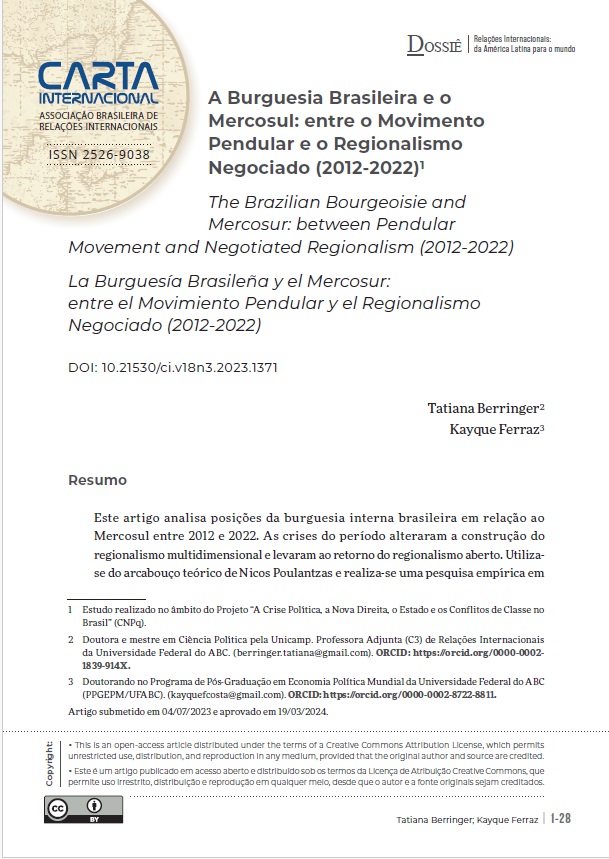The Brazilian Bourgeoisie and Mercosur
between Pendular Movement and Negotiated Regionalism (2012-2022)
DOI:
https://doi.org/10.21530/ci.v18n3.2023.1371Keywords:
Bourgeoisie, Regionalism, Power block, Mercosur, StateAbstract
This article analyzes the positions of Brazilian internal bourgeoisie regarding
Mercosul between 2012 and 2022. The
theoretical framework of Nicos Poulantzas is used, and an empirical research is
carried out in documents of the business associations that represent the internal
bourgeoisie. The hypothesis is that this class fraction reacted to changes in
international politics and to the domestic political crisis. It is argued that the position
and interests of the internal bourgeoisie varied, conforming a pendulum movement
that transitioned between open regionalism and negotiated regionalism.
Downloads

Published
How to Cite
Issue
Section
License
Copyright (c) 2024 Tatiana Berringer, Kayque Ferraz Costa

This work is licensed under a Creative Commons Attribution 4.0 International License.
Authors who publish with this journal agree to the following terms:
- Authors retain copyright and grant the journal right of first publication with the work simultaneously licensed under a Creative Commons Atribuição 4.0 Internacional that allows others to share the work with an acknowledgement of the work's authorship and initial publication in this journal.
- Authors are able to enter into separate, additional contractual arrangements for the non-exclusive distribution of the journal's published version of the work (post it to an institutional repository or publish it in a book, for example), with an acknowledgement of its initial publication in this journal.


